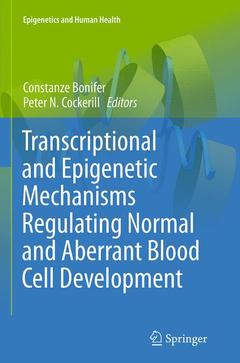During vertebrate hematopoiesis many specialized cell types are formed with vastly different functions such as B cells, T cells, granulocytes, macrophages, erythrocytes and megakaryocytes. To tightly control the enormous proliferative potential of developing blood cells, an intricately balanced signaling and transcription network has evolved that ensures that the different cell types are formed at the right time and in the right numbers. Intricate regulatory mechanisms ensure that blood cells function properly and have a determined life span. Moreover, in the adaptive immune system, long-lived memory cells have evolved that ensure that when pathogens have been seen once they will never cause a problem again. In this book we will therefore make a journey from asking how more primitive organisms use the epigenetic regulatory machinery to balance growth with differentiation control towards digging deep into what controls the function of specialized cells of the human immune system. We will first discover that flies make blood but exist without blood vessels, why fish make blood cells in the kidney and which precise genetic circuitries are required for these developmental pathways. We will then learn the regulatory principles that drive the differentiation of mature blood cells from stem cells and what controls their function in mammals. In the process, we will find out what unites hematopoietic stem cells and endothelial cells. Finally, we will shed light on the molecular mechanisms that either alter hematopoietic cell differentiation or lead to the development of cells with impaired function.




